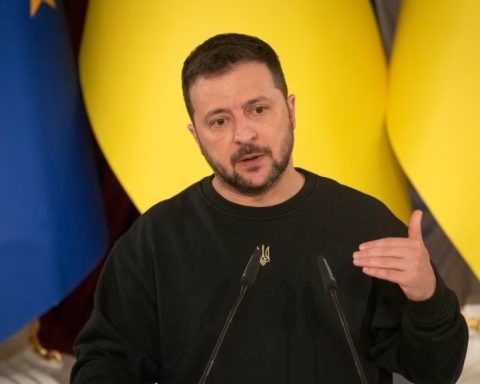On March 16, 2025, the Trump administration deported over 200 alleged Venezuelan gang members to El Salvador, prompting the White House to deny violating a federal judge’s order issued hours earlier to halt such actions under the Alien Enemies Act of 1798.
The operation, targeting members of the Tren de Aragua gang, unfolded despite U.S. District Judge James Boasberg’s Saturday evening ruling to stop the deportations and return any flights in progress, raising questions of executive overreach and constitutional compliance.
While Fox News celebrated the move as a triumph against crime, CNN and NBC warned of a looming constitutional crisis, and BBC highlighted El Salvador’s role under President Nayib Bukele. The White House insists the planes had left U.S. airspace before the order, but critics, including the ACLU, argue it flouted judicial authority. This article examines the deportation’s execution, the legal standoff, political reactions, and its broader implications.
The Deportation Drama Unfolds
The saga began Saturday, March 15, when President Donald Trump invoked the Alien Enemies Act to expel alleged Tren de Aragua members, branding them threats to U.S. security. BBC reported that by Sunday morning, El Salvador’s President Nayib Bukele confirmed 238 Venezuelans and 23 MS-13 members had landed in San Salvador, transferred to the notorious Terrorism Confinement Center (CECOT).
A senior official told CBS News, per BBC, that 261 individuals were deported, with 137 under the wartime law and others via standard immigration processes.
The operation’s timing collided with judicial intervention. The New York Times detailed how Judge Boasberg issued a temporary restraining order at 7:26 p.m. Eastern Time, blocking the Act’s use and demanding airborne planes return. CNN noted his verbal directive came earlier, around 6:41 p.m., as flights were tracked off the Yucatan Peninsula, per Axios. Yet, Bukele’s nighttime video—captioned “Oopsie… Too late”—showed the deportees arriving, suggesting defiance or a razor-thin timeline.
White House Stance: Denial and Deflection
White House Press Secretary Karoline Leavitt staunchly denied violating the order. Fox News quoted her Sunday statement: “The administration did not ‘refuse to comply’ with a court order,” asserting the deportees “had already been removed from U.S. territory” before the ruling’s formalization. She bizarrely referenced an “aircraft carrier full of foreign alien terrorists,” though evidence points to commercial flights like a Global Crossing Airlines plane (tail number N837VA), per Reuters.
The New York Times reported Leavitt’s broader claim that federal courts lack jurisdiction over Trump’s foreign affairs powers, a position echoing the administration’s appeal filed Saturday night, per NBC. Axios cited officials admitting they aimed to complete the deportations before judicial review, with one saying, “We wanted them on the ground first.” This preemptive strike, orchestrated by Stephen Miller and Kristyn Noem, per Axios, underscores a strategy to outpace legal challenges.
Judicial Pushback: A Constitutional Test
Judge Boasberg’s order stemmed from an ACLU lawsuit filed hours before Trump’s proclamation, representing five Venezuelans denying gang ties. NBC reported the judge’s skepticism that the Alien Enemies Act—last used during World War II to intern Japanese Americans—applied to a gang absent a declared war with Venezuela. “Invasion” and “predatory incursion” relate to hostile nations, not criminal groups, he argued, per The New York Times.
CNN highlighted the constitutional stakes: Boasberg’s verbal command to turn planes around, though omitted from the written order, tested executive compliance. The ACLU’s Lee Gelernt told Reuters that any post-order deportations would breach the ruling, urging the U.S. to retrieve the deportees. Legal experts like Georgetown’s Steve Vladeck, cited by Reuters, dismissed the White House’s “international waters” defense, insisting federal jurisdiction persists globally over U.S. defendants.
Political Fallout: Triumph vs. Tyranny
The administration framed the deportations as a victory. Fox News’ Sunday coverage featured Leavitt touting the removal of “nearly 300 Tren de Aragua terrorists,” saving “countless American lives.” Trump took to Truth Social, per The Washington Post, thanking Bukele and slamming Democrats for weakness on immigration. Secretary of State Marco Rubio praised El Salvador’s “very good jails” at a “fair price”—$6 million, per TIME—saving U.S. taxpayers, he claimed on X.
Critics saw authoritarianism. CNN’s March 17 analysis warned of a “constitutional crisis,” with the White House’s denial failing to clarify the timeline. NBC quoted Senator Mike Rounds on “State of the Union,” expressing uncertainty but insisting, “We expect the executive branch to follow the law.” House Democrat Hakeem Jeffries, per The Independent, vowed to defend the rule of law, calling the move a violation. Amnesty International, via BBC, decried it as “racist targeting” of Venezuelans without evidence.
El Salvador’s Role: Bukele’s Mega-Prison Play
El Salvador’s Nayib Bukele emerged as a gleeful accomplice. BBC and NPR reported his X posts mocking the court order, showcasing shackled deportees entering CECOT—a mega-prison housing 40,000, known for harsh conditions, per DW. TIME noted the $6 million deal, brokered during Rubio’s February visit, as Bukele’s bid to fund his anti-crime crusade while aligning with Trump. “For a period of one year, renewable,” Bukele wrote, per Reuters, signaling a long-term arrangement.
Human rights groups recoiled. NPR cited concerns over CECOT’s inhumane treatment, while Venezuela’s government, per DW, condemned the Act’s use as “illegal,” evoking “Nazi concentration camps.” The lack of transparency—neither U.S. nor El Salvador identified the deportees or their crimes, per BBC—fueled fears of arbitrary expulsions.
The Human Cost: Families in Limbo
The deportees’ fate struck a personal chord. The New York Times reported relatives’ anguish, with one claiming her brother, deported without a criminal record, was misidentified. NBC noted the ACLU’s push for due process, arguing the Act bypassed hearings for those over 14. Families lacked access to CECOT’s opaque system, per DW, leaving them guessing about loved ones’ status.
Posts on X reflected this distress. Users like
@nunez_anna, on March 17, cited the precedent-setting nature of the deportations, hinting at prolonged court battles. The Washington Post underscored the human toll: lives uprooted, potentially unjustly, amid a legal gray zone.
Legal Horizon: Supreme Court Showdown?
The clash seems destined for higher courts. NBC reported the Justice Department’s appeal to the D.C. Circuit, with Attorney General Pam Bondi, per POLITICO, slamming Boasberg for supporting “Tren de Aragua terrorists.” CNN’s analysts predicted a Supreme Court battle, testing Trump’s claimed authority against judicial oversight. The New York Times quoted Harvard’s Noah Feldman: the case hinges on judicial deference to presidential security calls, with scant precedent.
Axios cited a White House official’s bravado: “This is headed to the Supreme Court. And we’re going to win.” Yet, Reuters’ legal experts warned of contempt risks if defiance is proven, a scenario Mark Zaid on X called a “constitutional crisis,” per The Independent.
Broader Implications: Power and Precedent
The episode illuminates Trump’s second-term playbook. BBC tied it to his January order labeling Tren de Aragua a terrorist group, fulfilling campaign promises for mass deportations. CNN noted his pattern of testing limits, leaving courts to react post-facto—a trend Axios dubbed a “showdown always going to happen.” The New York Times warned that upholding the Act’s use could greenlight broader expulsions without due process.
For NATO and global allies, per The Guardian, it signals U.S. unpredictability. Fox News framed it as a necessary purge, but NBC’s coverage of Europe’s unease—Poland’s nuclear pleas, France’s contingency talks—suggested wider ripples. Gold prices hitting $3,000, per CNN, reflected this global nervousness.
Conclusion: A Nation at a Crossroads
The White House’s denial of violating Judge Boasberg’s order, amid the March 16 deportation of Venezuelans, marks a flashpoint in Trump’s presidency. BBC, CNN, NBC, Fox News, and The New York Times paint a divided picture: a bold strike against crime or a reckless assault on law. As Bukele’s prison fills and legal battles loom, the U.S. grapples with its checks and balances. Whether this sets a precedent for executive power or a rebuke of overreach, the fallout—human, legal, and geopolitical—will echo far beyond the weekend’s flights.















